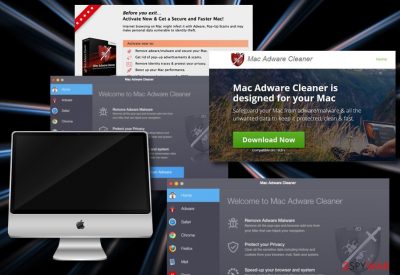

- #MAC ADWARE CLEANER POPUP INSTALL#
- #MAC ADWARE CLEANER POPUP SOFTWARE#
- #MAC ADWARE CLEANER POPUP CODE#
- #MAC ADWARE CLEANER POPUP DOWNLOAD#
XProtect is Apple’s built-in antivirus software on your Mac.
#MAC ADWARE CLEANER POPUP INSTALL#
This way, when you install new software on your Mac, Apple can check the software against its notarized version to learn if any changes have been made.Īpple can also learn if that app is un-notarized, at which point it will stop the installation and alert you of the security risk.

#MAC ADWARE CLEANER POPUP CODE#
Notarizationīefore allowing apps on the App Store, Apple scans the code for malware and notarizes it if the scan comes back clean. These notifications mean that malware can’t install and open itself in the background without Gatekeeper asking for your approval. Gatekeeper is also the reason you get notifications asking if you’re sure you want to open a new app when you first install it. It’s a tool that keeps new apps, plug-ins, or installers quarantined from the rest of your Mac until Apple verifies that it’s safe.Īpple does this by ensuring the app is from a reliable developer, has been notarized by Apple, and is unchanged from the notarized version. Gatekeeper is the first barrier that stops malware from affecting your Mac. So serious that it offers a Security Bounty that promises to pay up to $1 million to anyone who can find critical flaws with Apple’s security systems.Īs a part of these security systems on your Mac, Apple designed macOS with a set of powerful tools that help protect you from most malware infections. How Apple invests in the security of its productsĪpple is serious about security. Luckily, your Mac has built-in protections to keep most of them at bay. This isn’t an exhaustive list of all the malware that can affect your Mac, it’s only a snippet of the most common culprits. As a Mac owner, you might become the target of a phishing scam trying to convince you to install fake MacDefender, MacProtector, or MacSecurity software.

#MAC ADWARE CLEANER POPUP DOWNLOAD#
You can download MacKeeper to scan your entire Mac for viruses and adware and use its real-time protection to make sure you are completely shielded while online. While Apple does a great job of offering built-in malware protection with macOS, it isn’t perfect and you might want to boost your protection with reliable antivirus software, like MacKeeper. AV-TEST reported 674,000 pieces of new malware developed in 2020 alone, over ten times that of the previous year and indication of a rise in Mac viruses.Īnyone can fall prey to a new computer virus. While it’s true that Apple created one of the most secure operating systems around with macOS, there is still lots of malicious software (malware) designed to infect it. In fact, it’s entirely possible to get a virus on your Mac. It’s only natural for you to be confused since many people hold the misconception that Mac computers can’t get viruses. If your Mac is acting strange, you might wonder if it has a virus.


 0 kommentar(er)
0 kommentar(er)
